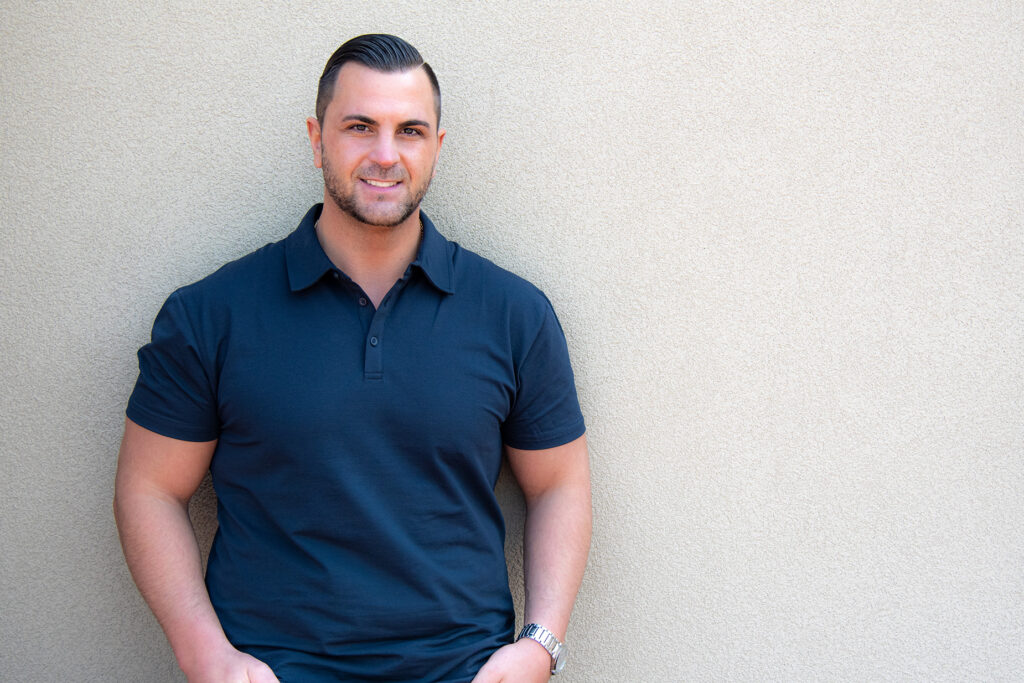News
For addiction recovery, don’t discount power of a good paycheck

Longtime area deejay Jason McConnell relied on income from his self-owned businesses during the early stages of recovery from a substance use disorder.
The Wright Center and allies in newly formed Project PROGRESS aim to expand work options for region’s residents seeking to overcome substance use disorders
Earning money came easily for Jason McConnell from the time he was a teen, pulling in hundreds of dollars per night at area hotspots as a popular deejay.
The Olyphant native’s prospects sank fast, however, as a substance use disorder that first surfaced in high school began destroying his business relationships, his credit rating and his life. The lucrative weekend gigs declined, until finally one night the college dropout found himself playing music at one of the few spots that would still agree to hire him:
a strip club.
Humiliated and dejected, he quit, left the club and drove straight to a liquor store. Before his Saturday night ended, McConnell, then in his mid-20s, had been charged with a DUI offense.
“That was really the turning point,” says McConnell, now 30 and sober for nearly six years. “The day after that DUI, I remember sitting in a rocker at my parents’ house, beneath the deck, and I felt so empty inside. That’s when I was like, ‘Let’s do whatever we have to do. I can’t live like this anymore.’”
For people like McConnell who are intent on overcoming a substance use disorder and leading a healthier life, the challenge often goes beyond dealing with the physical and psychological addiction. They also face financial hurdles, often because social stigma and other barriers prevent them from vying for desirable jobs or even entering quality educational and training programs. Their road to recovery becomes blocked, potentially resulting in poor outcomes, even relapse.
The Wright Center for Community Health – a Scranton-based provider of primary care, medication-assisted treatment and recovery-related services in Northeast Pennsylvania – recognizes how difficult it can be to get and stay sober, especially if a person struggles to find and maintain well-paying employment. That’s why The Wright Center is leading a regional initiative called Project PROGRESS.
The project, which was launched in mid-2022, aims to expand opportunities for people living in recovery to find meaningful and family-sustaining employment, including careers in the health care field. Fueled by grant funding from the Appalachian Regional Commission, the project’s promoters will engage with business owners and leaders across multiple industries to reduce the unfair stigma associated with substance use disorders and remove obstacles that prohibit workplace participation. Along the way, promoters believe this long-term effort to address the damage done by the nation’s opioid crisis can foster greater compassion toward people coping with substance use disorders and improve our region’s still-healing communities.

‘When I got sober I realized it was a second chance at being happy, being everything that I ever wanted to be,” says Olyphant native Jason McConnell, who now works at The Wright Center for Community Health as a certified recovery specialist.
“Project PROGRESS helps to close the loop for those in our midst who are successfully addressing their substance use disorders but need steady employment to continue on their recovery journeys,” says Meaghan Ruddy, The Wright Center’s senior vice president of academic affairs, enterprise assessment and advancement, and chief research and development officer. “Treatment options for substance use disorders are plentiful and effective. But good jobs with empathetic employers can be significantly harder to find.”
Project PROGRESS relies on the support of multiple partners, including the AllOne Recovery Educational Institute of Luzerne County Community College, the Institute for Public Policy and Economic Development, the Northeast Pennsylvania Area Health Education Center, and the Wayne Pike Workforce Alliance.
The initiative has already provided free training to dozens of individuals seeking to enter health care careers as certified recovery specialists and community health workers. Next, the founders of Project PROGRESS intend to promote greater awareness about a network of recovery-friendly employers in the region who can extend job opportunities in health care, manufacturing, retail and other industries.
Finding an empathetic employer
In McConnell’s case, his ability to earn money immediately after treatment – and while living in the vulnerable stage of early recovery – was hobbled by the lack of a college degree. But he had an entrepreneurial drive. He managed to slowly revive his deejay operation while also launching a cellphone repair service. Then, during a health checkup at The Wright Center, another job prospect emerged.
Dr. Linda Thomas-Hemak, The Wright Center’s president and CEO, who also had been McConnell’s longtime physician, knew about the impressive strides he had made toward changing his life for the better. “She said that I would be great for a position as a certified recovery specialist,” he recalls.
McConnell suspended business at his cellphone shop for two weeks so that he could complete the required training, then began work as a certified recovery specialist – a person who has gone through the recovery process and can serve as a mentor, role model and motivator for those beginning the journey.
“When I meet a new patient, I try to explain to them that I’ve been where they’re at,” he says. “The job involves a lot of talking about your personal experience and giving suggestions.”
Through the Project PROGRESS program, training to become a certified recovery specialist has been provided by Luzerne County Community College to dozens of individuals. More trainees are expected to soon enter the pipeline. Similarly, the Northeast Pennsylvania Area Health Education Center offers preparation to become a community
health worker.
McConnell can attest that patients who lack a post-high school education might not find it easy to land a decent job, because they are all too commonly viewed by certain employers as having three strikes against them. “Without an education, getting a job after being in active addiction and possibly having a criminal record from past behavior – forget about it,” he says. “It’s nearly impossible.”
Even for job-seekers with impressive resumes, employers might not provide the flexible schedules necessary to treat their disorders, especially if that involves weekly doctor’s appointments for medication-assisted treatment. “How can someone work a typical 9-to-5 shift,” asks McConnell, “when they have to go to doctor’s appointments, get involved in a recovery program and constantly work on themselves?”
‘Second chance at being happy’
In his role as a certified recovery specialist, McConnell prioritizes his patients’ schedules and stays accessible by phone call and text. Although based at The Wright Center’s Mid Valley Practice in Jermyn, he moves throughout the area, meeting patients where they are at, even if that means a corner coffee shop. His workdays can be mentally and emotionally draining due to the intensity of some conversations, he says. But he remains eager to talk with patients and other audiences, particularly school groups, sharing the powerful story of his personal journey and hoping to help people avoid or recover from similar mistakes.
McConnell, a 2009 graduate of Mid Valley High School in Throop, traces his troubles back to energy drinks. At 15 or 16, he began consuming the highly caffeinated beverages for the rush.
“From there, I experimented,” he says. He moved from marijuana and alcohol to prescription pills, then to eventually buying opioids off the street from strangers.
“I think I was just chasing a feeling,” he says.
Under addiction’s grip, he fell off of the college track. He took a string of sales jobs, hastily leaving each when his performance lagged or he couldn’t get drugs delivered to the site. His downward spiral culminated with legal troubles, shattered relationships and multiple car mishaps, including serious crashes and a string of minor ones. “Right before I got sober, I was the king of popping tires,” he says. “I crushed so many curbs.”
Finally, McConnell was facing a DUI charge and contemplating the far-reaching consequences of his mistakes. “That solidified it for me,” he says. “I don’t think I was any more willing to enter rehabilitation than at that moment.”
Thanks to the Pocono Mountain Recovery Center, the Geisinger Marworth outpatient treatment program, his family, other supporters and his own determination, McConnell got the appropriate care for his disorder.
He was able to put his life on a whole new trajectory. He gradually restored his credit rating. He even turned his once-tarnished deejay business into a thriving moonlighting enterprise.
“When I got sober, I realized it was a second chance at being happy, being everything that I ever wanted to be,” he says. “And with a clear mind, you can go a long way.”
Project PROGRESS aims to connect individuals and recovery-friendly employers in Lackawanna, Luzerne, Pike, Susquehanna, Wayne and Wyoming counties. For more information, visit ProjectPROGRESSnepa.org.








